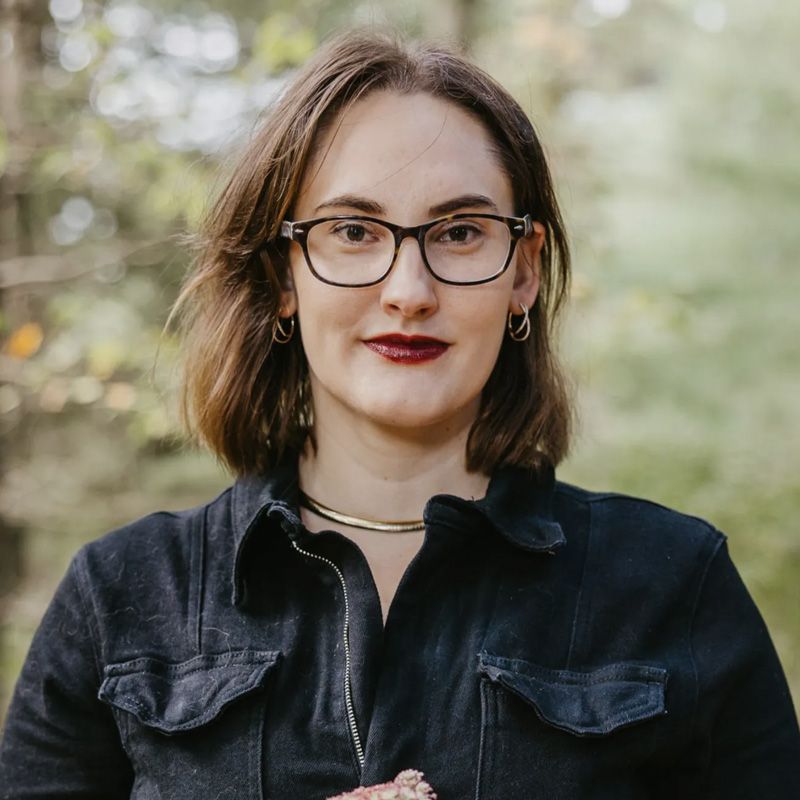Non-Monogamy Glossary: Essential Terms for Ethical Non-Monogamous Relationships
Is it just us, or does it feel like the hardest part of non-monogamy is all the new lingo you’ve got to learn?
Ok, that might be a SLIGHT exaggeration, but it does feel like there’s a bunch of new vocab words to memorize if you want to sit with the cool kids in the cafeteria. As a sex therapist in Massachusetts, I'm firmly team “You CAN sit with us” and The Pomegranate Institute is here to help people exploring non-monogamy and polyamory navigate relationships gracefully with a bunch of new vocab words.
Words that All Kind of Mean Non-Monogamy:
Some people use Consensual Non-Monogamy, Ethical Non-Monogamy and Polyamory interchangeably, and other people think there are important distinction between the terms. Some think “ethical” is too mellifluous to define, and prefer “consensual” because it has a clearer definition. Some people abbreviate Polyamory as “Poly” but we don’t recommend this. In 2015 a Polynesian tumblr user put out a call to action to remind folks that “poly” was already in use to refer to the Polynesian community and to ask non-monogamous folks not to use it.
Styles of Polyamory
There are a lot of different relationship structures covered under the umbrella of non-monogamy. Some terms describe the degree to which partners and their other partners spend time together.
Comet: Refers to a connection that, like a comet, is fleeting but special, and may re-occur with less frequency that other types of partnerships and may involve less regular communication between connections. If Amy is dating Matt, and Matt goes to a conference every year in San Francisco, and he spends romantic time with Jessica, they might refer to each other as comet connections.
Parallel Polyamory: Relationships that do not overlap or have any cross-over. If Amy is dating Matt, and Matt is dating Jessica, Amy and Jessica are not dating, don’t generally spend time together, and might not even ever meet, but both are aware that each other exists.
Garden Party Polyamory: So named because partners don’t necessarily hang out often, but might all see each other at a garden party, or other special event. If Amy is dating Matt, and Matt is dating Jessica, Jessica and Amy both attend Matt’s birthday party.
Kitchen Table Polyamory: So named because partners spend a decent amount of time together, to such an extent that they could all hang out around the same kitchen table. If Amy is dating Matt, and Matt is dating Jessica, Amy, Matt and Jessica all go out to brunch on the weekends.
Lap Siting Polyamory: So named because partners are so close to their partners partners that they can imagine comfortably sitting in their laps. If Amy is dating Matt and Matt is dating Jessica, Jessica feels comfortable sitting on Amy’s lap. For some, this term has an added sexual connotation of implied overlap between partners, in this case, an implication that Jessica and Amy will share some sort of sexual contact.
Other words that have to do with the setup of a relationship:
Closed polycule/relationship: The people in this relationship are not currently open to dating new people. Sometimes, this is called a vessel which describes taking a temporary pause on pursuing new connections.
Don’t Ask, Don’t Tell: Partners have given each other permission to date externally, but have asked to not hear any details at all about these external relationships.
Egalitarian Polyamory: All relationships are considered equally important, without a hierarchy. Partners strive to dive resources equally or equitably across relationships.
Hierarchical Polyamory: Having a hierarchy refers to some relationships being considered more important than others. Some use words like primary and secondary partner, to draw this distinction. Some people who practice hierarchical polyamory prefer to say that a secondary partner is taking up a “smaller” not “lesser” part in their lives. Phrases like nesting partner, to describe a partner you live with, or anchor partner or administrative partner to describe a partner that you jointly manage aspects of life with (could be co-parenting, co-mingled finances, or designating a partner as a healthcare proxy) might also play a role in defining a hierarchy.
Polyfidelity: A polycule that is closed, all members agree to be faithful to their existing relationships within the polycule and not to seek new connections. Sometimes polyfidelity implies a degree of egalitarianness between the different relationships, but not always.
One Penis Policy: This describes a relationship structure in which a man has given his female partner permission to date, but with the request or “rule” that she only date other women. We’re not fans of this policy (for hopefully obvious reasons) and the wording itself is transphobic as it focuses on genitalia and not gender identity.
Open Polycule: members of this polycule are open to pursuing new connections.
Solo Polyamory: Someone who prioritizes individual autonomy while pursuing multiple romantic connections. So if Matt is dating Jessica and also dating Amy, he likely doesn’t live with, share finances or co-parenting responsibilities with either.
Throuple: A type of polycule involving three people who are all dating each other. This is different from a “V” which involves a hinge partner and their two external partners who are not dating each other.
Words that have to do with experiences you might have in non-monogamy:
Ambiamory: Describes a relationship structure or pattern of attraction that could be monogamous or polyamorous, depends on the specific partners involved. Jessica might describe herself as someone who sometimes dates monogamously and sometimes dates polyamorously, she is open to either, and happy in both types of relationships.
Autonomy-prioritizing polyamorist: Value autonomy above all else in relationships. May find boundaries restrictive or controlling. The opposite values of a “transparency-prioritizing polyamorist”.
Compersion: the opposite of Schadenfreude (joy at someone else’s pain), experiencing real joy when witnessing or hearing about a partner’s positive experience with another partner. Often referred to as the “holy grail” of polyamory, this is something people aspire to experience. My favorite part of this word is that it was supposedly coined when members of a well-known commune consulted a Ouija board looking for a word that could capture this experience.
Cuckoo: named for the cutthroat little bird (not the derogatory name for someone with a mental illness), a cuckoo is someone who plans to behave so badly towards their metamour that they drive them away, allowing them to pursue a monogamous relationship with their partner.
Couple privilege: The advantages that an established couple has in society and in the polycule.
Cowboy/Cowgirl/Cowpoke: Describes someone who is trying to “lasso” their partner away from their other partner(s) and into a monogamous relationship.
Dyad: refers to two people that have a relationship with each other, could be romantic, could be platonic.
Established Relationship Energy (ERE): Describes the positive emotional experience of being in a long-term partnership.
Exclusion jealously: The fear that as your partner starts dating someone new, you will be excluded, or feel excluded.
Frubble: A cute British word for feeling a little bubble of compersion.
Fluid bonding: Partners who don’t use any barrier methods (condoms, dental dams, gloves) when they have sex. Sometimes in polyamory, some partners within a polycule or constellation may be fluid bonded and others might not be. So if Matt is dating Amy and also dating Jessica, he might be fluid bonded with Amy but not Jessica.
Hinge: Refers to the partner who is dating two other partners. In the example we have been using where Matt is dating Amy and also Jessica, Matt is the hinge partner.
Langdon Chart: A chart that describes current and past romantic and sexual relationships. Named for Kevin Langdon who developed the chart to describe sexual relationships between members of science fiction fan culture.
Limerence: sometimes mistaken for love, limerence describes the early states of romantic attraction that border on obsession and are heightened by the uncertainty of not knowing if the object of your desire feels the same. Limerence can be connected to new relationship energy.
Metamour: your partners other partner that you are not dating. Some people know their metamour exists but don’t have individual relationships with them, and others have platonic relationships with their metamours.
Metamorsel: describes the experience of thinking your metamour is a cute little snack.
New Relationship Energy: describes getting swept up in the energy and excitement of a new relationship. Some people can get addicted to the high of new relationships and chase them often, this is called an “NRE junkie”.
Other Significant Other: Refers to a partner who is not your primary or nesting partner.
Platonic Life Partner: A deep and committed life partnership that involves a degree of entanglement (like living together or co-mingling finances) but does not involve sex or romance.
Polybomb: Refers to dropping the “bomb” of wanting to be polyamorous into a previously monogamous relationship.
Polycule: People who are in a network of non-monogamous relationships.
Polysaturated: Describes the experience of being saturated, swamped, or maybe even overwhelmed by existing partnerships. Usually identifying polysaturation means you plan to not seek out new connections.
Polywog: Cute word to describe children in a polycule.
Sneakarchy: The experience of trying to practice egalitarian polyamory, but finding hierarchy creeping in in unexpected ways.
Transparency-prioritizing polyamorists: Value lots of communication about boundaries, hearing about their partner’s other relationships, and building trust. The opposite values of an “autonomy-prioritizing polyamorist”.
Unicorn: Usually refers to a bisexual woman who is open to dating or having sex with couples.
Unicorn Hunters: Generally derogatory term for a couple that is seeking a bisexual woman to have a threesome with. They are implied to be pursuing the sexual experience rather than wanting to form a meaningful relationship, and there is a degree of exploitation or sometimes even biphobia inherent in this behavior.
Wibble: The opposite of “fribble”, refers to feeling a flash of jealousy.
Whether you’re thinking of opening up your relationship, or an experienced polyamorist with a thriving polycule, we hope this glossary adds some fun new words to your lexicon. If this article made you want to talk to a Polyamory-affirming sex therapist, reach out! We’d love to meet you.

Sarah Chotkowski, LICSW | Kink-Aware Therapist in Massachusetts
Based in Western Massachusetts, Sarah is a therapist who specializes in treating patients from erotically marginalized communities. She is queer, LGBTQIA+ affirming, kink-aware, pleasure-positive, and passionate about working with people who practice Ethical Non-Monogamy/Polyamory and folks who have been or are involved in sex work.











